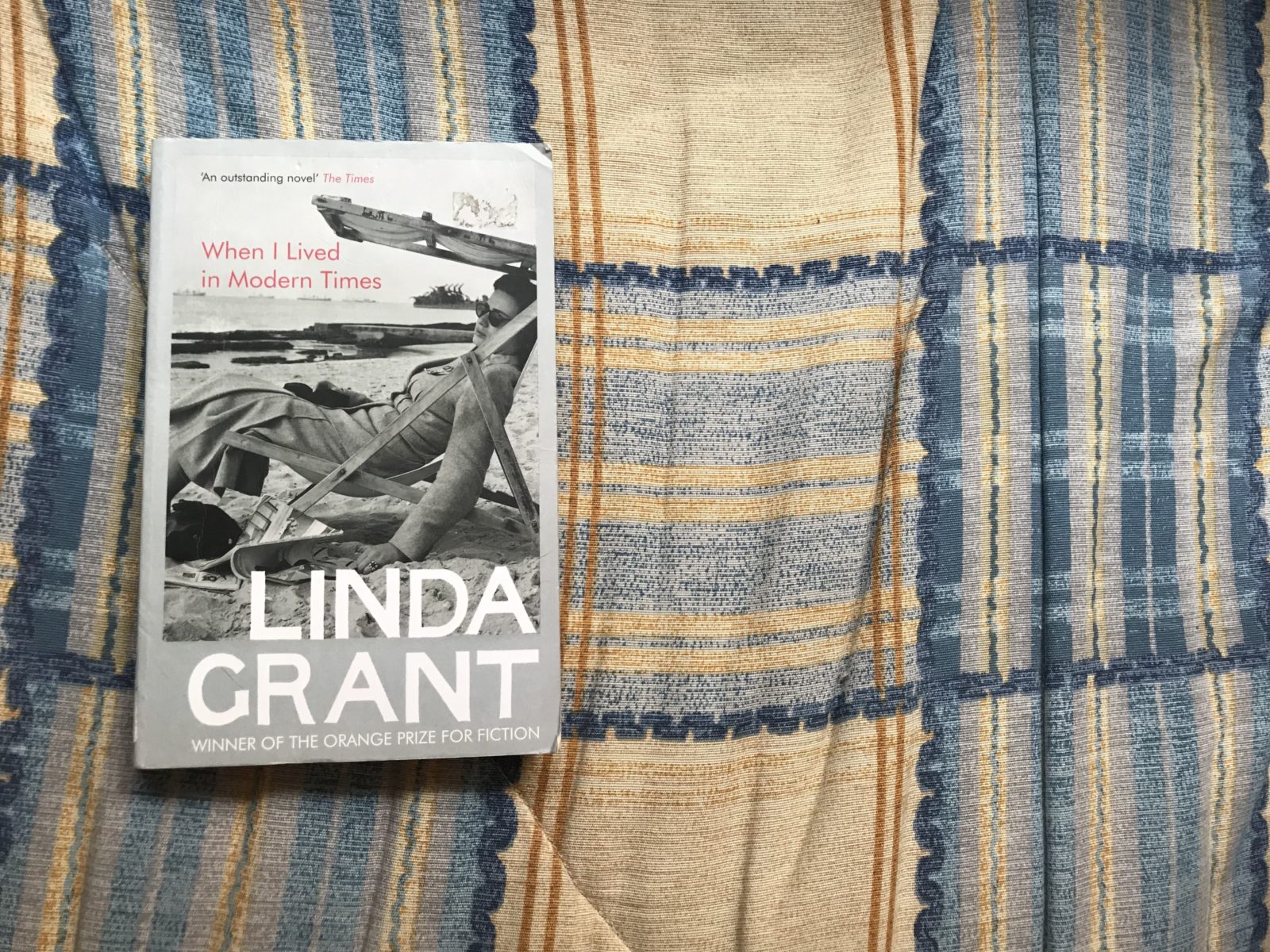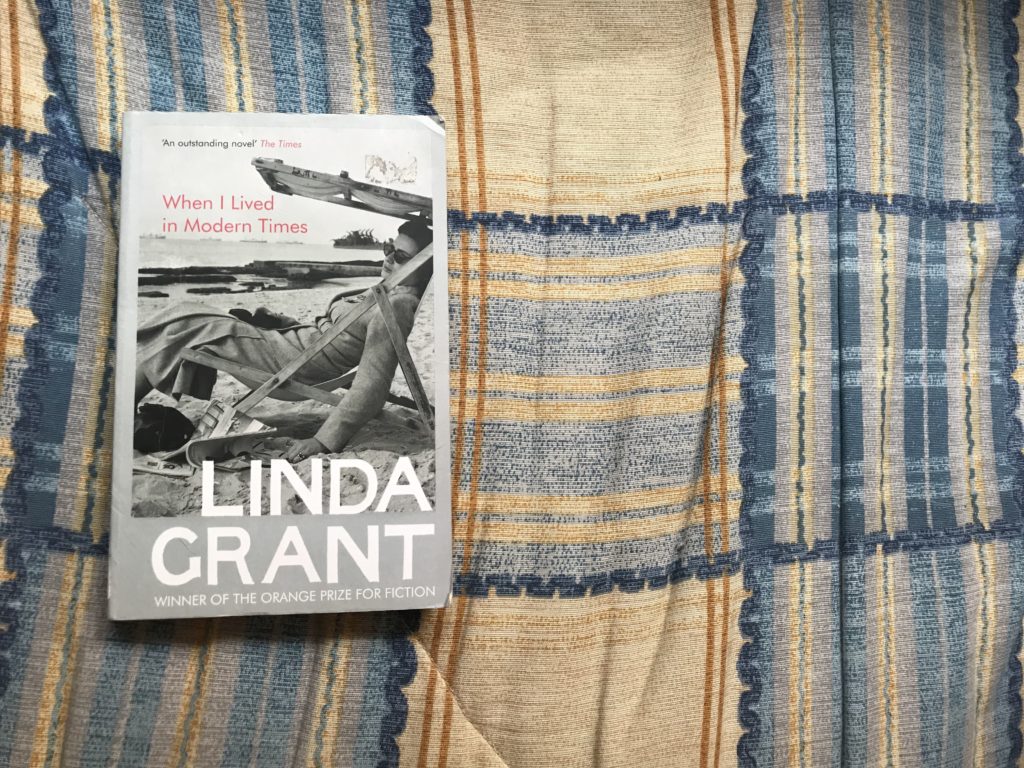When I Lived in Modern Times by Linda Grant, which won the Women’s Prize in 2000, is an example of a book whose main theme I knew almost nothing about, which I am kind of embarrassed to admit. It is set in Palestine in the mid 1940s, as the protagonist, a Jew whose grandparents immigrated to the UK from Latvia, returns to Tel Aviv to help build the new country, which wasn’t even named Israel until much later.
So yes, I admit I knew almost nothing about the Israeli-Palestinian conflict, and while now that I am an adult that is completely my fault, I also like to blame the U.S. education system, which as we all know, when it comes to any matter not directly dealing with U.S. history, just sucks, to put it bluntly. My education in the U.S. skipped over huge chunks of history that didn’t directly relate to the country’s history, and yet, I also had to take yearlong course that was only about U.S. history. Go figure haha.
Anyways, to get back to the novel, after her mother dies, she takes her small inheritance and travels to Tel Aviv to start a new life. Just as innocent as I was ignorant about the situation, Evelyn quickly finds herself caught between two identities—catering to the British women whose hair she does in the salon, and struggling to find the best use in the Jewish fight for what was in that time called Zion. Caught in the crossfire of the conflict, she is abruptly removed from Tel Aviv against her will and sent back to Western Europe, where the reader is told she meets her future husband and apparently moves on with her life. I won’t say anymore to avoid spoilers, but I learned so much from this book, as well as the other reading I did before starting it to be able to understand the inherent context of the situation.
Grant herself was born in Liverpool to Jewish immigrant parents who changed their surname to Grant in the 1950s, an aspect that Grant talks about in her novel as her character sways between two names and two identities. Grant employs her own personal background very much in her writing, and is drawn to writing about characters who feel marginalized because of their complicated identities, and has been outspoken about her own path to find not only her Jewish identity, but also her Jewish voice in her fiction writing.
In addition to her eight novels, she has also written four nonfiction books, and had a column at The Guardian. Her debut novel (The Cast Iron Shore) won the David Higham Prize for Fiction, and she has been shortlisted for the Man Booker Prize and longlisted for the Women’s Prize for Fiction twice since she won it. She is now a Fellow of the Royal Society of Literature, and her latest book, A Stranger City, which has been called her ‘Brexit novel’, was released in May 2019.


